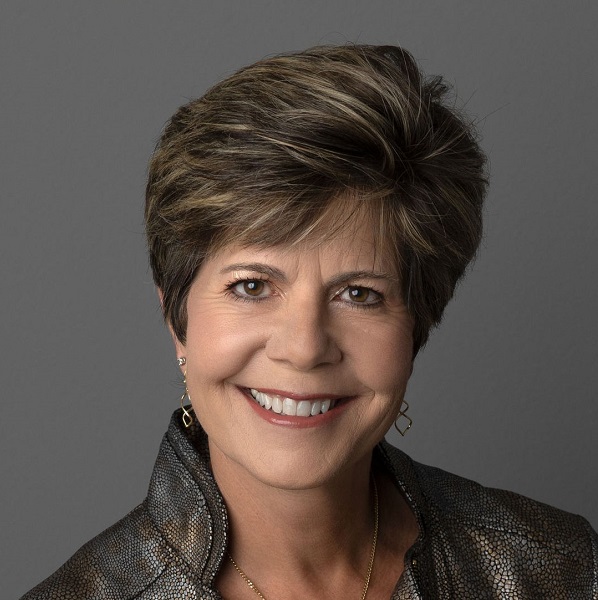Ukraine’s cruel devastation and the global response to the humanitarian tragedy have propelled profound analyses of what prepared the ground for this devastation[1], as well as of what this tragedy points us to.[2] All these analyses converge on one point – it is a time of a vast collective shift.
According to the Global Commons G20 Survey published in 2021, 60% of the world’s population supports a transformation of the global economy that bridges the current ecological, social, and spiritual divides.[3] Nonetheless, this transformation is largely not happening yet. As the founder of the Presencing Institute Otto Scharmer points out, we do not have the movement and the collaborative leadership technologies to make it possible.
My sense is that we have not yet clearly envisioned the steps and stages in this process of global transformation. Such clarity would enable us to build a movement around the concrete steps needed. Our thinking about global change still appears split between the two binary approaches – militarism and pacifism. Militarism, which emphasizes physical force over others, has been dominant in the world until this point in time. It reflects a physicalist understanding of what is real and of what matters. Pacifism, the belief that we can choose peace and that consciousness leads the way in the material world, has been spreading since the turn of the 20th century and has come to a head in the 1960s as a reaction to the extremes of militarism. Because the whole history of human civilization has been plagued by the violent use of force, we have become accustomed to considering collective peace a fond but utopian shared dream, of which only the scriptures of world wisdom traditions, and the Western New Age peace movement, speak openly.
After World War II, we witnessed the first coming together of nations around what became known as “first principles” of collective peace. They were elaborated in a sequence of historic documents – the United Nations Charter, the Universal Declaration of Human Rights, United Nations Declaration and Programme of Action on the Culture of Peace, the United Nations Sustainable Development Goals, and the Earth Charter. [4]
However, as subsequent genocides in Cambodia and Myanmar and the tragic wars in Syria, Yemen, Iraq, Afghanistan, and now Ukraine have shown, this collective agreement about first principles of peaceful global governance still has no muscle to it. The current predominantly economic paradigm of governments and international decision-making does not prioritize accountability to more equitable, just, and sustainable actions.
This predominant economic paradigm has been visibly disrupted for the first time through the tragedy in Ukraine. After decades of doing business with former communist authoritarian bullies and closing an eye to their corrupt dealings in former East European countries, the West’s dominant economic imperative in a world gone awry is finally cracking. Democratic countries are uniting around firm economic measures counter to their immediate economic interests but reflective of the growing realization, long overdue, that you don’t do business-as-usual with authoritarian regimes.[5] We are witnessing the emergence of some sense of moral imperative in the decision-making of Western governments.
Meanwhile people at the grassroots level have by far led the way in showing governments what moral imperative looks like. The poorest country in Europe, Moldova, has taken in over 100 000 Ukrainian refugees (while the richest country, the U.S., will only take in 100 000), and the bulk of these refugees are being housed in private homes. Pause and think for a moment about what life in these modest family homes must look like now. Would we in the U.S. open our spacious homes in that way? That’s just a hint of the moral paralysis we are still swimming in as entitled consumers, even as thousands of U.S. citizens have bought one-way tickets to Poland and crossed the border into Ukraine to fight for the rights of that country to exist.
This contrast illustrates what quantum physicists have repeatedly established – that the state and degree of development of consciousness determines what is possible and what gets manifested in the physical and social plane. Many have written about the collective consciousness shift under way – a shift toward a massive realization of the spiritual nature of reality and the need to align all our forms of social and material organization with universal spiritual laws. That is what humanity has always dreamed of as the Great Peace.
But can we transition into an epoch of global peace only through spiritual practices and collaborative diplomacy, as has been repeatedly suggested?
Ukraine has demonstrated that determination, muscle, and courage are as needed as a vision of peaceful and collaborative democracy; that tyrants have to be stopped from their path of destruction. Had Ukraine only relied on collaborative diplomacy, there would most likely be no country to negotiate about by now – because, as we have repeatedly seen, tyrants do not act in good faith, and are quite happy to bomb cities and hospitals while at the negotiating table.
What, then is a realistic path, given the deep global corruption, and the many blind spots in our individual and collective consciousness, that have enabled the rise of tyrants and authoritarian regimes?
The stages in our massive historic transformation toward a sustainable and regenerative global society were first described concretely in Bahá’í sources in the mid-19th century and are still poorly grasped. This process, which reflects a dynamic between progressive inner spiritual transformation and outer change toward collaborative and consultative solutions, was foreseen as passing through several stages in the establishment of what was called a Lesser Peace. What does that mean?
The first stage is the awakening of collective consciousness to our core moral and spiritual nature. Through a sequence of deepening tragedies, the world has increasingly recognized that universal moral considerations must guide decision-making, that self-interest and narrow group interest need to give way to a more long-term perspective of our interdependence and our collective needs on this planet. This first stage has seen the emergence of planetary citizenship and a shared planetary moral imperative.
The tragedy unfolding before our eyes in Ukraine has brought into focus the intense solidarity that people around the world feel with this suffering nation and the willingness of hundreds of thousands of individuals and grassroots organizations to set their lives to the side and step up to the need of the moment.
Parallel with that, Western governments are starting to show a shift of balance, where, for the first time, economic interest is giving way to moral imperative. The gross war crimes perpetrated by Putin in Ukraine are finally making it evident to the democratic world that it needs to learn quickly how to move to energy sufficiency based on clean energy resources and to break its addiction to cheap consumerism reliant on Chinese exports.
The next and very challenging step is for the U.S. and other Western countries to get behind the meaningful restructuring of the United Nations so that its decision-making power adequately represents the whole world and can be enforced. That involves re-thinking the extent and parameters of national sovereignty. It is precisely because we have been stuck on our over-arching fixation with absolute national sovereignty as a greater priority than the survival of the planet, that we have not empowered the United Nations to be able to fulfill their mandate to protect peace and foster a sustainable and regenerative global culture.
This paralysis has been held in place by the philosophical and practical chasm between militarism and pacifism regarding how to solve world problems. Because decision-makers have viewed the pacifist approach as naïve and impracticable, countries continue to invest in vast military spending to protect their sovereignty – in most cases, spending disproportionate to the funding of other sectors of society more relevant to the quality of human life.
A third and critical step toward a Lesser Peace is finding a practical middle ground between pacifism and militarism in recognition of the dynamic interdependence between inner and outer factors. In other words, the healing and expansion of human consciousness toward global responsibility also needs to be socially and politically protected. Key in that is the forging of an eventual political agreement between countries that would create a global federation supported and protected by a global military force, whose purpose is to stop the rise of authoritarian regimes and dictators and protect the peace. Such an agreement properly enforced would release enormous amounts of military spending in individual nations to go toward education and social restructuring. It would also make no longer possible what we are witnessing now – a failure of the world to stand with muscle behind justice.
Had the United Nations been a meaningfully empowered organization, it would have opened and enforced a humanitarian corridor to Mariupol where hundreds of women and children died a slow and agonizing death of suffocation and starvation, buried under the rubble of the bombed theatre. Instead, our current, largely symbolic United Nations has mostly counted humanitarian casualties and struggled to provide humanitarian aid, unable to take meaningful leadership in this critical moment.
Nor is NATO military alliance a lasting solution as it only protects the interests of member states and is therefore rightly perceived as representing partial group interests – not the interests of all of humanity. While NATO was a necessary transitional step toward the creation of a truly global military force, the world is now ready for a collective force under global, rather than U.S. governance, equally committed to protecting every country on this planet so that peace can gradually begin to emerge.
It is only after we have learned how to protect peace with clarity and muscle, and humanity has had a chance to experience life in relative peace, which has never existed in history so far, that we will see the full emergence of the Great Peace – the collective realization that universal spiritual principles, articulated by wisdom traditions in terms of values, morals, and ethics, have to become central to global governance. That will be eventually achieved through the elevation of the common spiritual core of world religions, without granting power to individual religions to seek dominance.
This path toward a great and encompassing peace on our critically endangered planet would force the West to come out of its not entirely ungrounded image in the eyes of Russia and other parts of the world as “degenerate, weak, and hollow”[6], and to re-discover its core moral and spiritual commitments. It will also make it less patronizing to the rest of the world and more open to learning from the ways and history of other cultures. It will eliminate power-seeking among countries and move societies in the direction of genuine and lasting healing and unity.
To explore more deeply the dynamic between inner healing and outer collective action, read my recent book, Global Unitive Healing: Integral Skills for Personal and Collective Transformation.
[1] Read Putin’s long-term strategy of destabilizing the West and fostering the rise of Christian fascism at https://eand.co/is-putin-beaten-f2f9da3478a4
[2] https://medium.com/presencing-institute-blog/putin-and-the-power-of-collective-action-from-shared-awareness-ece5dd3467cd
[3] Read the report at https://globalcommonsalliance.org/wp-content/uploads/2021/08/Global-Commons-G20-Survey-full-report.pdf or explore Otto Scharmer’s excellent analysis of its implications at https://medium.com/presencing-institute-blog/putin-and-the-power-of-collective-action-from-shared-awareness-ece5dd3467cd
[4] See Joni Carley, A Global Governance Paradigm Shift
[5] See The Economist, March 12th-18th, 2022
[6] See https://eand.co/is-putin-beaten-f2f9da3478a4
Elena Mustakova, author of Global Unitive Healing, brings a psychological, social, and historical evolutionary lens and points to spiritual principles and conscious practical steps that can transform collective despair into a path forward.








